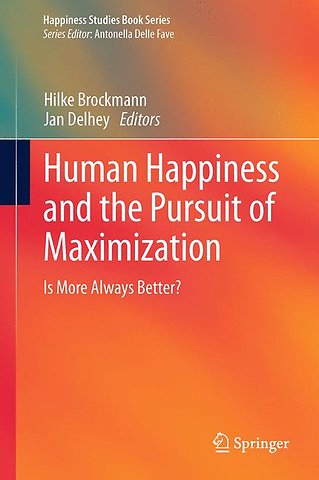Human Happiness and the Pursuit of Maximization
Is More Always Better?
Paperback Engels 2015 9789400799592Samenvatting
This book tests the critical potential of happiness research to evaluate contemporary high-performance societies. These societies, defined as affluent capitalist societies, emphasize competition and success both institutionally and culturally. Growing affluence improves life in many ways, for a large number of people. We lead longer, safer, and more comfortable lives than previous generations. But we also live faster, and are competition-toughened, like top athletes. As a result, we suspect limits and detect downsides of our high-speed lives. The ubiquitous maximization principle opens up a systematic gateway to the pleasures and pains of contemporary life. Using happiness as a reference point, this book explores the philosophical and empirical limits of the maximization rule. It considers the answer to questions such as: Precisely, why did the idea of (economic) maximization gain so much ground in our Western way of thinking? When, and in which life domains, does maximization work, when does it fail? When do qualities and when do quantities matter? Does maximization yield a different (un)happiness dividend in different species, cultures, and societies?
Specificaties
Lezersrecensies
Inhoudsopgave
Rubrieken
- advisering
- algemeen management
- coaching en trainen
- communicatie en media
- economie
- financieel management
- inkoop en logistiek
- internet en social media
- it-management / ict
- juridisch
- leiderschap
- marketing
- mens en maatschappij
- non-profit
- ondernemen
- organisatiekunde
- personal finance
- personeelsmanagement
- persoonlijke effectiviteit
- projectmanagement
- psychologie
- reclame en verkoop
- strategisch management
- verandermanagement
- werk en loopbaan
